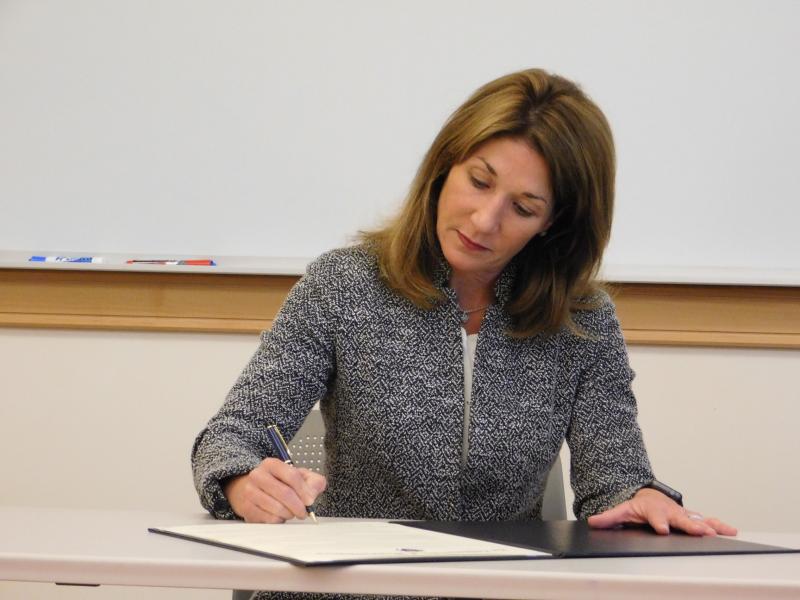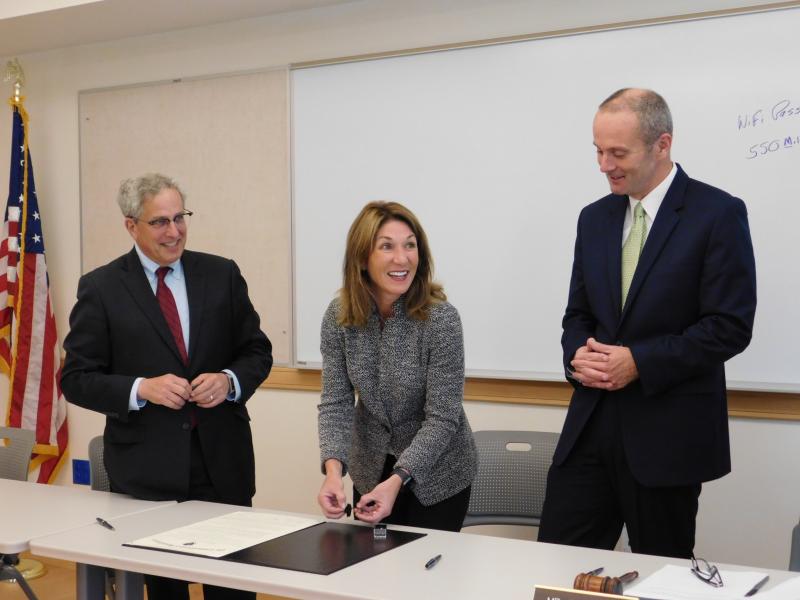Marion to analyze town employment, efficiency of Public Works
A new Community Compact signed in Marion allows the town two state grants, which officials say they will use to analyze the Department of Public Works, as well as standardize town job descriptions and salary levels.
Lieutenant Governor Karyn Polito came by Marion's police station on Friday, October 13 to sign the Community Compact.
Marion is the 307th of 351 towns in Massachusetts to sign the Community Compact. Rochester signed a similar compact focusing on upgrading technology and fostering agriculturally-based businesses in 2016.
The Compact, which began as an initiative of Governor Charlie Baker in 2015, is a voluntary, mutual agreement between the Baker-Polito administration and individual cities and towns. The town must agree to implement at least one "best practice" area. The best practice areas should reflect needed areas of improvement within the town.
"The area we've chosen," said Marion's Town Administrator Paul Dawson, "is human resources." He explained the town would also hire analysts to study the efficiency of the Marion's Public Works Department.
The agreement means that the state will provide Marion with two Community Compact grants, one for developing a wage and classification plan for town government jobs, and one for analyzing the Public Works Department. The amount of money that Marion will receive in each grant has not yet been finalized.
Dawson noted that the compact would be used to standardize job descriptions in town departments, as well as address salary levels and scales. "We should be able to attract talent, but at a reasonable cost," he explained. "it will standardize the pay scale and the salaries as people move up the scale and so forth."
Dawson also stated that Marion's superintendent of the Public Works Department, Robert Zora, is soon to retire, and that there is an opportunity to analyze the department as it moves forward.
"We'd like to look at how the department works, and what changes could be made, if needed," he explained. "Could we split the water and sewer departments? Is there something else we could do differently? Maybe what we're doing is already the most efficient way, but this is an opportunity to analyze everything and make sure that we're at peak efficiency."














